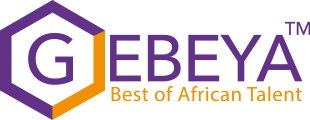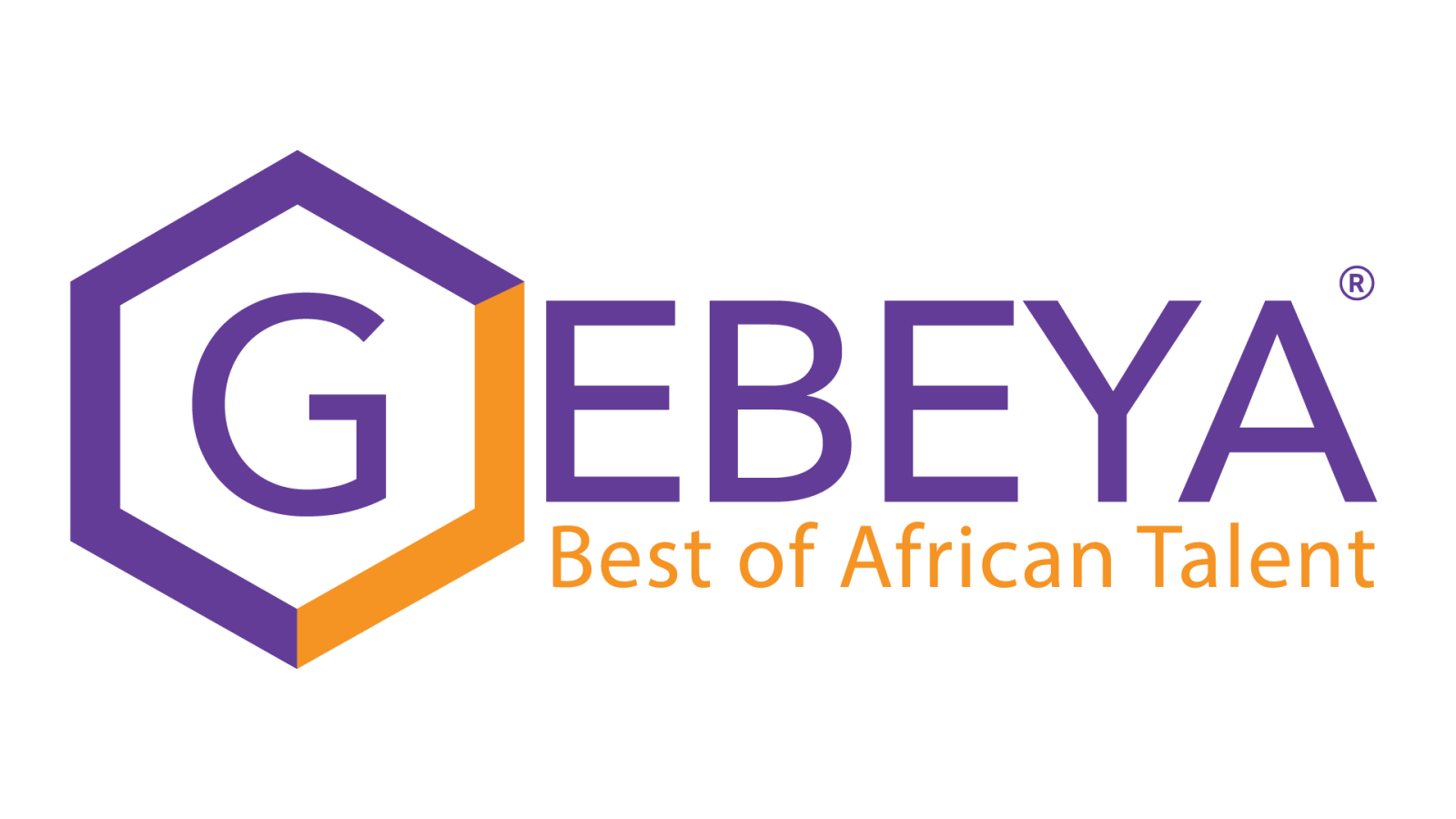A different kind of viral content is plaguing the internet. While many organizations have slowed or ceased operations during the coronavirus pandemic, other industries have flourished—from video conference platforms to home delivery services. But what lessons can all industries learn from this moment? Opportunity lurks beneath the surface of global disruption.
“Organizations must prioritize digital transformation in their business strategies immediately,” said Amadou Daffe, CEO and Co-Founder of Gebeya Inc., a Pan-African Ed Tech and online Marketplace company headquartered in Addis Ababa, Ethiopia. “Those that adapt will not only survive this time, but will thrive in the post-pandemic future.”
A return to business as usual will not be an option. Nomenclature is shifting—birthing phrases such as “remote control” and #togetherapart—which will influence employees’ expectations about the future of work and telecommuting. Businesses unaccustomed to having their teams work from home must stress-test new policies, and prepare to adapt their work cultures for the future. They must invest in strong digital capabilities to gain a competitive advantage. Here are seven lessons and truths to glean, as COVID-19 influences and accelerates the growth of digital:
1. Remote work is vital, not optional
- While remote work was often reserved for those traveling on business or workers who were home sick, WFH might become a new norm. Organizations need to utilize multi-channel and project management software such as Trello and Slack, alongside cloud-based document collaboration tools like Google Drive and Dropbox to keep teams connected and work flowing.
- To be successful, remote work must be coupled by not only policies, but also training. Companies must set expectations on appropriate communication channels, and working hours, especially if teams are based in different time zones. The company culture must transition from an in-person cohesive setting to a dispersed one, which retains professionalism—especially if in a client-facing industry.
- The upside to a structured WFH plan: it normalizes working away from the office and sets a precedent for team members who might fall ill, unexpectedly have to remain home with a sick child, or who are transitioning back into work after maternity or paternity leave.
2. If content is king, data is a demigod
- Consumer brands with a light digital presence have lost much of their foot traffic, as potential customers self-isolate and practice social distancing. Brands with e-commerce sites must learn to capture the traffic they lost from face-to-face interactions, meaning they will need to more heavily rely on data and analytics to measure customer engagement, and drive online sales.
- A strong digital presence to support these efforts is key, including a persistent and consistent brand story. In the absence of offline channels through which to communicate their messaging, brands must strategize to retain loyalty and capture new business.
- Most critically, the wisdom of these online insights must be retained to “close the loop” and bring business offline, once it’s safe to venture back into the world of real-life retail shopping.

Access Africa's Best Talent

Access Africa's Best Talent
3. Talent is everywhere
- Business must prepare to connect with the best of global talent, lest they lose the opportunity to leverage a workforce that is listening intently. With the number of lost jobs globally predicted to be in the millions, a flush of talent will soon hit the market. Organizations that are or soon will be hiring should brace themselves for an influx of eager applicants, some of whom might have temporarily or permanently relocated within the past few weeks. This might necessitate being open to hires based outside of the marketplace or country—and that’s a great thing.
- Remote talent offers a unique opportunity to break into new markets abroad. Consider that an employee based in a target market will have insight into culturally-appropriate messaging, generating content in a different language, and serves a de facto company representative without the expense and investment of opening an outpost in another country. Incorporating automation tools such as chat bots means businesses won’t miss opportunities to reach potential customers in different time zones, who might want to connect outside of normal business hours.
- A flexible workforce promotes equality, transcending barriers of race, gender, sexual orientation, age, ability, and geographic location that might intimidate or prevent a potential hire from pursuing an opportunity. Telecommuting is a selling point that should be stated upfront in a job posting.
4. Education access must be equalized
- With a number of secondary schools and universities closed for the remainder of the school year, alternative teaching methods must be utilized. Students are already using programs such as Blackboard and Google Classroom to complete homework assignments, but now they must also learn to learn at home. Institutions and programs must adapt to assist those with learning disabilities, or those whose environments are not optimized for study.
- As the pipeline for the future workforce, students must practice learning outside of a “traditional” classroom setting. Now is the perfect time for them to gain familiarity with webinars and other online learning resources, in preparation for a future of taking continuing education and professional development courses to stay relevant.
- Organizations must support online learning efforts for current and future talent. They must update and articulate their policies on financial assistance, flexible work schedules, and subsidizing the cost of home internet to promote learning. With video and online appointments replacing in-person professional conferences and expos, companies must invest the flight and hotel cost-savings back into furthering their employees’ interests.
5. The service sector must evolve
- Few industries have been harder hit by mandated business closures than hospitality, a sector with notoriously thin profit margins. In-house or outsourced food delivery platforms have been one outlet for some to keep their kitchen staff employed.
- As for other service industries, such as beauty salons and fitness centers: Technology has come to the rescue again. Instructors have been able to continue making revenue through teaching online courses, staying connected with students also stuck at home.
- Existing services such as grocery and meal-kit delivery will continue to grow; but there is opportunity to expand to pharmacies, home goods, and connect with digital doctors, as both trust in and demand for each blossom.
6. Digital payment capabilities must grow
- In cash-based economies such as Ethiopia, physical transactions are the dominant option. If consumers can’t access goods and services in person, economic activities will freeze. Few vendors or grocers offer online options, and mostly only major hotels accept debit or credit cards.
- Apps such as Venmo and Paypal must be linked to a card or bank account, and Venmo requires a U.S. phone number. But novel mobile-based solutions are popping up, including Yenepay and M-BIRR, both of which can be reloaded with cash at select vendors throughout Ethiopia. The latter is fully mobile-based, and does not require an internet connection.
- As mobile and internet penetration improves (15% in Ethiopia; up from .8% a decade ago), consumers might find themselves bypassing credit and debit cards in favor of apps linked to cash or bank accounts. Regulators and retailers both must watch and react to this development closely.
7. Internet is an essential service
- Governments must prioritize internet connectivity as a human right. Citizens need reliable access to information about emergencies, travel restrictions, and public health warnings that can save lives. Governments can invest in broadband infrastructure, upgrade to 5G, as well as offer free wifi hotspots in public parks and squares.
- The cost of internet connections should decrease to complement increased demand; institutions must strategically support accessibility and expansion, lowering or removing fees and time limits on internet usage.
- Ongoing innovation in digital technology is critical, creating entrepreneurial opportunities for students whose school year has been disrupted, or, as the New York Times called them, The Class of COVID-19.
From the employee-side emerges new job opportunities, for those savvy enough to leverage their skills. Organizations will need individuals who can lead and maintain their own digital transformations in the midst of this sea change and beyond. Enter Digital Transformation Strategists, who, as a fresh pair of eyes will not only be able to identify existing weaknesses, but also will help the business integrate digital capabilities into their future plans. These individuals will be able to do this work full-time or a contract basis, working with multiple companies at once, and meeting a demand that the market didn’t previously fully realize. “Other digital skills in demand include cloud project management (43%), technical implementation skills (42%) and infrastructure and operations expertise (37%),” according to research conducted by Vanson Bourne, in a recent survey of UK-based IT and business decision-makers about the needs of their workforce.
What’s next?
- Embrace the changes that are happening and that will come.
- Acknowledge them, first internally, then externally to partners and customers.
- Develop a company-wide digital transformation strategy, planned in phases, with clear objectives and budgets for hitting each benchmark.
- Enlist the help of experts.
- Watch business and employee satisfaction grow.
And remember to wash your hands.

